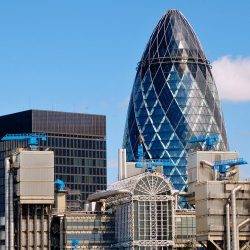November 5, 2018
Companies increasingly worried that Internet of Things could become a major burden
 The performance of Internet of Things (IoT) devices could undermine the performance of an entire organisation, according to a new report (registration required) from software firm Dynatrace, based on a poll of 800 CIOs. The report claims that nearly three-quarters (74 percent) of IT leaders are concerned that Internet of Things (IoT) performance problems could directly impact business operations and significantly damage revenues. This is mostly because 78 percent of CIOs said there is a risk that their organization will roll-out IoT strategies without having a plan or solution in place to manage the performance of the complex cloud ecosystems that underpin IoT rollouts. In fact, 69 percent of CIOs predicted that IoT will become a major performance management burden as they struggle to overcome the escalating complexity of their modern enterprise cloud environments.
The performance of Internet of Things (IoT) devices could undermine the performance of an entire organisation, according to a new report (registration required) from software firm Dynatrace, based on a poll of 800 CIOs. The report claims that nearly three-quarters (74 percent) of IT leaders are concerned that Internet of Things (IoT) performance problems could directly impact business operations and significantly damage revenues. This is mostly because 78 percent of CIOs said there is a risk that their organization will roll-out IoT strategies without having a plan or solution in place to manage the performance of the complex cloud ecosystems that underpin IoT rollouts. In fact, 69 percent of CIOs predicted that IoT will become a major performance management burden as they struggle to overcome the escalating complexity of their modern enterprise cloud environments.





















 London’s office market continues to attract occupiers and investors, despite political and economic uncertainty JLL’s recent Central London offices seminar revealed. The event highlighted the strength of the capital’s office market where Central London has seen sustained levels of both leasing and investment activity so far in 2018 and JLL anticipates that the final numbers will match, if not exceed those recorded in 2017. Take-up of offices across Central London reached 8.3m sq ft at the end of Q3 2018, with 3.1m sq ft leased in the West End and 4.5m sq ft in the City.
London’s office market continues to attract occupiers and investors, despite political and economic uncertainty JLL’s recent Central London offices seminar revealed. The event highlighted the strength of the capital’s office market where Central London has seen sustained levels of both leasing and investment activity so far in 2018 and JLL anticipates that the final numbers will match, if not exceed those recorded in 2017. Take-up of offices across Central London reached 8.3m sq ft at the end of Q3 2018, with 3.1m sq ft leased in the West End and 4.5m sq ft in the City.









October 31, 2018
What is in a name for the UK facilities management sector?
by Jo Sutherland • Comment, Facilities management
(more…)